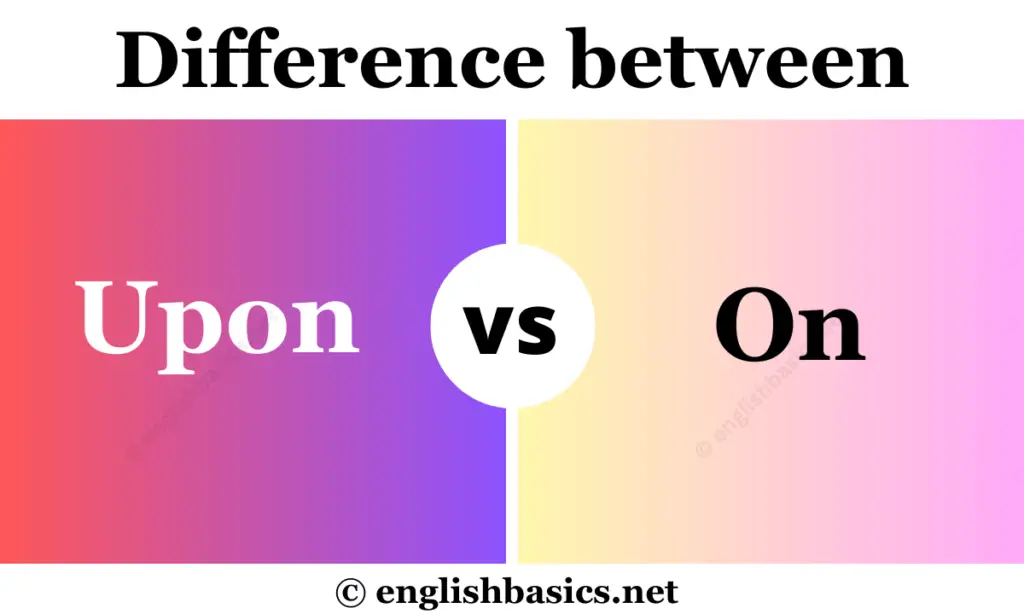There are many confusing words in the English language. But the pair that confuses people the most is “upon” and “on.” Both of these terms are prepositions, and people often fail to realize their distinctions.
While both terms signify the same thing, people often mistake these two terms as synonyms. It is true that “on” and “upon” can be used interchangeably, but sometimes they cannot. They might be similar, but there are some subtle differences that we need to understand.
Let us discuss and clarify our doubts.

Upon vs On – Difference
On and Upon are both prepositions. In sentences, prepositions link a noun or pronoun to other words or parts of the sentence. We use prepositions to indicate time, direction, and location or to introduce an object.
Let us look at some examples of “on”
“She went to work on Sunday.”
Here, “on” indicates time.
“He sat on the table.”
Here, “on” indicates place or position.
Now, let us look at some examples of “upon”
“There were no chairs to sit upon.”
Here, “upon” indicates a position or place.
“I will finish the work upon my return.”
Here, “upon” indicates time.
It is to observe that both “on” and “upon” can be used to indicate time and location.
The fact that both prepositions are quite similar concerning their meaning and purpose, people often use them interchangeably. For example;
- She relied on her mother for her education.
- She relied upon her mother for her education.
Both sentences are grammatically correct, and they convey the same meaning. In such cases, “on” and “upon” might appear completely the same.
But in some cases or certain contexts, the word “upon” cannot be replaced with the word “on.” Let us understand it with an example.
“Once upon a time, there was a person named Boyle.”
So we observe that the word upon fits in the sentence and looks more suitable rather than “on.” Herein lies the major difference between upon and on. The difference lies in their readability and usage. Another example would be;
“The party is depending upon her arrival.”
Another difference between the two terms is that “upon” is more formal than “on.” It is said that “upon” emphasizes the fact of a sentence and gives a more formal touch to it, while “on” seems a little less formal in some contexts.
But sometimes, the difference or choice between the two is not just a matter of formality or style. In some contexts, the two terms can mean absolutely different things. For example;
“We will study the influence of caste on socialization.”
Here, “on” signifies that socialization is affected by caste.
“We will study the influence of caste upon socialization.”
Here, “upon” signifies that caste will take effect after socialization has occurred.
Thus, we learn that “on” and “upon” can be used interchangeably. But the words also have different meanings in different contexts. They can be distinguished based on their readability and usage and different sentence meanings. Mistaking them for synonyms might cause errors in your sentences.